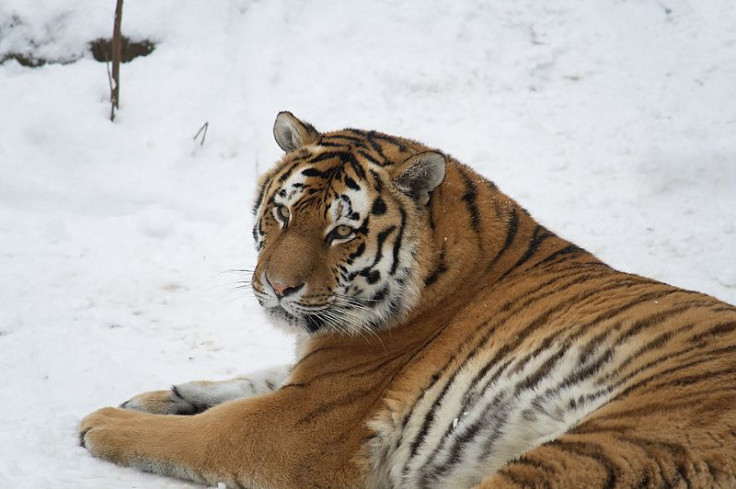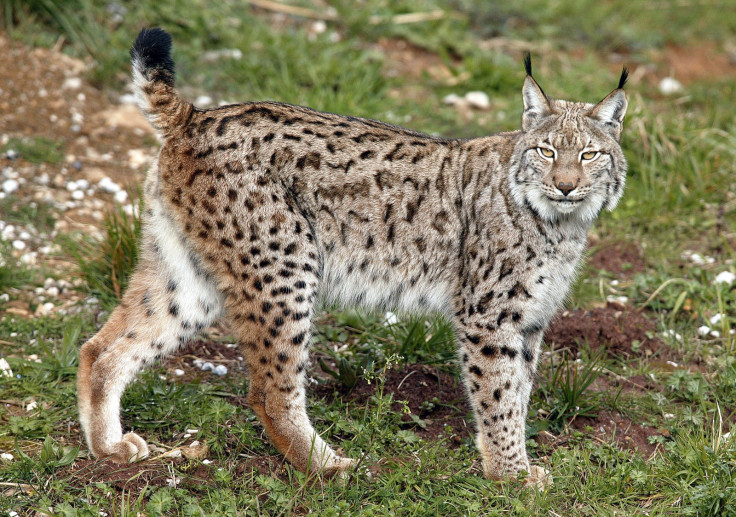Big feline fight sees first ever case of a tiger killing and eating a lynx

Conservationists have recorded what is believed to be the world's first ever example of a tiger killing and eating a lynx in the wild. The lethal attack, by the world's largest feline species, the Siberian tiger, was recorded in the latest edition of the European Journal of Wildlife Research, which was published earlier this month.
The fatal attack by the endangered Amur tiger was documented at the Bastak Nature Reserve in the species' last bastion in Russia's far east; there are estimated to be less than 400 left in the wild.
By studying the tracks in the snow around the scene where the grisly lynx carcass was discovered, Ivan Polkovnikov, a worker at the reserve, and his colleagues pieced together what they believed happened in a study made afterwards.
They believe the Siberian tiger (or Panthera tigris altaica) followed the Eurasian lynx (or Lynx lynx) by using the cover of trees and snow. The tiger then decided it had enough of following the lynx and bounded after it.

Despite their superior size, tigers can weigh up to 384 kg (847 lb) whilst lynx's weigh 45 kg (99 lb), the pair did struggle for around four metres, before the tiger came out victorious. The carcass of the largest lynx species on the planet was then taken uphill where the tiger sampled some flesh and then left.
Dale Miquelle of the Wildlife Conservation Society's Russia programme, who co-authored a study on the attack, believes that because of the relatively small amount of meat consumed, the attack was not because of hunger. "They are basically programmed to kill other competitors," said Miquelle in the journal. "We know that competing carnivores will do this kind of thing."
Congrats @TheWCS's Dale Miquelle for receiving @DenverZoo's Conservation Award for work with #Amurtigers in Russsia pic.twitter.com/NCWllEUlR2
— WCS Newsroom (@WCSNewsroom) October 20, 2015
Although this is the only recorded attack, made in March 2014 when the study was launched, Miquelle believes that this behaviour could be more common. "I think this is happening more often than we think, but it is always difficult to confirm and document," Miquelle says.
Tigers have, in the past, been known to kill other prominent carnivores, like wolves for instance, and John Goodrich, at the big cat conservation organisation Panthera in New York, said these killings are logical in the wild. "Carnivores will kill other carnivore species, and especially those that they compete with for food," he told the New Scientist.
© Copyright IBTimes 2025. All rights reserved.






















